第53章 CHAPTER VIII(5)
The Descoings had culled these treasures from three hundred church pictures, without knowing their value, and selecting them only for their good preservation. Many were not only in magnificent frames, but some were still under glass. Perhaps it was the beauty of the frames and the value of the glass that led the Descoings to retain the pictures. The furniture of the room was not wanting in the sort of luxury we prize in these days, though at that time it had no value in Issoudun. The clock, standing on the mantle-shelf between two superb silver candlesticks with six branches, had an ecclesiastical splendor which revealed the hand of Boulle. The armchairs of carved oak, covered with tapestry-work due to the devoted industry of women of high rank, would be treasured in these days, for each was surmounted with a crown and coat-of-arms. Between the windows stood a rich console, brought from some castle, on whose marble slab stood an immense China jar, in which the doctor kept his tobacco. But neither Rouget, nor his son, nor the cook, took the slightest care of all these treasures. They spat upon a hearth of exquisite delicacy, whose gilded mouldings were now green with verdigris. A handsome chandelier, partly of semi-transparent porcelain, was peppered, like the ceiling from which it hung, with black speckles, bearing witness to the immunity enjoyed by the flies. The Descoings had draped the windows with brocatelle curtains torn from the bed of some monastic prior. To the left of the entrance-door, stood a chest or coffer, worth many thousand francs, which the doctor now used for a sideboard.
"Here, Fanchette," cried Rouget to his cook, "bring two glasses; and give us some of the old wine."
Fanchette, a big Berrichon countrywoman, who was considered a better cook than even La Cognette, ran in to receive the order with a celerity which said much for the doctor's despotism, and something also for her own curiosity.
"What is an acre of vineyard worth in your parts?" asked the doctor, pouring out a glass of wine for Brazier.
"Three hundred francs in silver."
"Well, then! leave your niece here as my servant; she shall have three hundred francs in wages, and, as you are her guardian, you can take them."
"Every year?" exclaimed Brazier, with his eyes as wide as saucers.
"I leave that to your conscience," said the doctor. "She is an orphan; up to eighteen, she has no right to what she earns."
"Twelve to eighteen--that's six acres of vineyard!" said the uncle.
"Ay, she's a pretty one, gentle as a lamb, well made and active, and obedient as a kitten. She were the light o' my poor brother's eyes--"
"I will pay a year in advance," observed the doctor.
"Bless me! say two years, and I'll leave her with you, for she'll be better off with you than with us; my wife beats her, she can't abide her. There's none but I to stand up for her, and the little saint of a creature is as innocent as a new-born babe."
When he heard the last part of this speech, the doctor, struck by the word "innocent," made a sign to the uncle and took him out into the courtyard and from thence to the garden; leaving the Rabouilleuse at the table with Fanchette and Jean-Jacques, who immediately questioned her, and to whom she naively related her meeting with the doctor.
"There now, my little darling, good-by," said Uncle Brazier, coming back and kissing Flore on the forehead; "you can well say I've made your happiness by leaving you with this kind and worthy father of the poor; you must obey him as you would me. Be a good girl, and behave nicely, and do everything he tells you."
"Get the room over mine ready," said the doctor to Fanchette. "Little Flore--I am sure she is worthy of the name--will sleep there in future. To-morrow, we'll send for a shoemaker and a dressmaker. Put another plate on the table; she shall keep us company."
That evening, all Issoudun could talk of nothing else than the sudden appearance of the little "rabouilleuse" in Doctor Rouget's house. In that region of satire the nickname stuck to Mademoiselle Brazier before, during, and after the period of her good fortune.